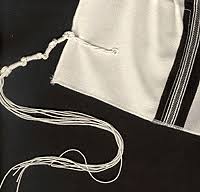Kol Nidre is the prayer to absolve one from vows made to God. NOT to other people.
But this is so misunderstood that is causes trouble. It has been used by anti-Semites to spread the word that Jews cannot be trusted because their vows are released in the Kol Nidre prayer.
Because of this many have tried to take the Kol Nidre out of Yom Kippur. But it is a tradition that holds so much more meaning for Jews than the translation and impact of the words themselves. The music associated with the Kol Nidre, the part without words, so often played on a cello with its haunting tune sets the mood for the service that gives us the opportunity to reflect on the past and resolve to make the next year better.
The words give us a reason to think we can always be better. But the reality sets that vows to God are often difficult to fulfill.
Deuteronomy 23:22-24 tells us to fulfill vows to God promptly.
Later defined by Rashi as 'within a year' or 3 festivals.
But vows are often problematic in that they are made under duress or in ignorance. They needed a way to make certain vows no valid. So the wisdom of those who interpreted the mitzvot encouraged people not to make vows. But when vows are stated there are defined four conditions under which the vows were not validated:
Incitement
Exaggeration
Ignorance
Constraint of external circumstances
It was for the other vows made to God that Kol Nidre holds true. Specifically it holds truth for those who during the Spanish Inquisition were forced to renounce their faith and accept Christianity. Or for those who have transgressed in significant ways to be welcomed to pray and be welcomed at the Yom Kippur service.
Nevertheless, we need to always remember that vows between people are not absolved with Kol Nidre. But it is a good time to resolve any conflicts between people and to fulfill any vows that are open. The time between Rosh Hashana and Yom Kippur is set aside just for this purpose. To make peace and do tshuvah with others when it is needed.
This is one thing about Judaism that I find to be both practical and fulfilling.


 Traditions Renewed
Traditions Renewed
